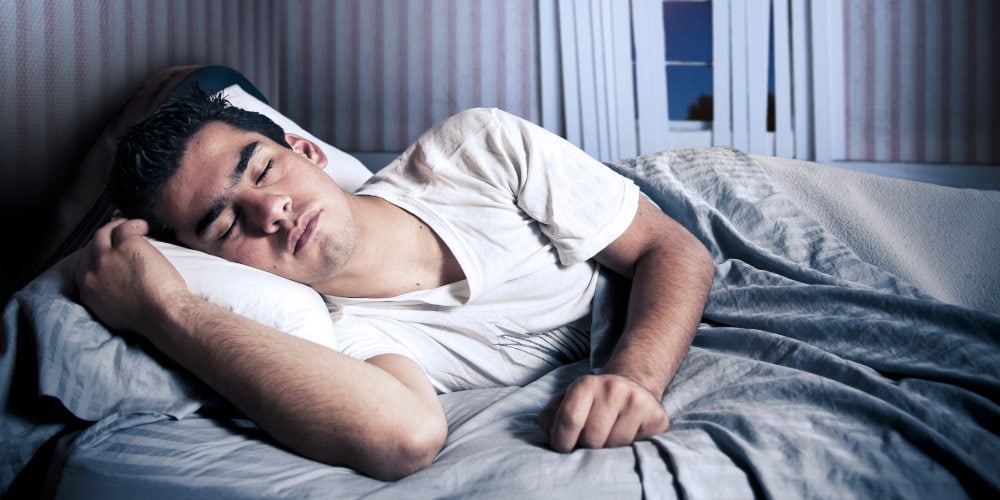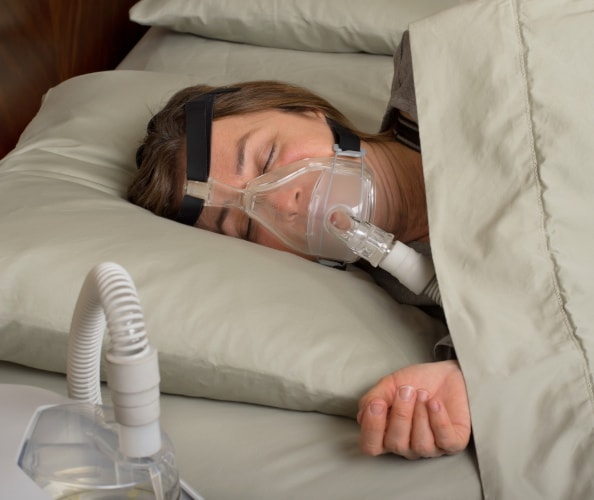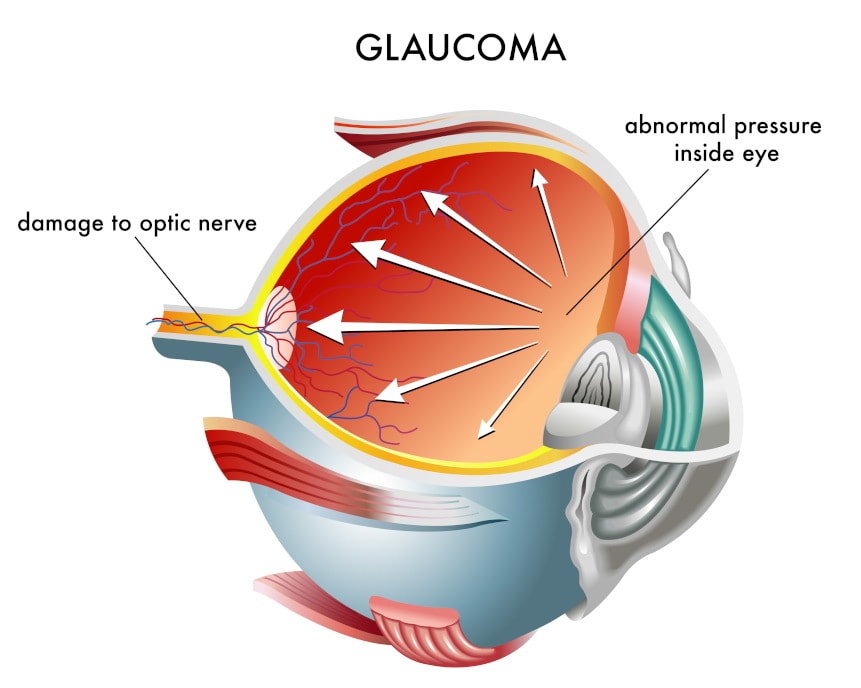A good night’s sleep is a critical determinant for a healthy well-being, so it is not surprising that a frequently asked question among my glaucoma patients is “how does poor or lack of sleep affect my glaucoma?”
We know that sleep time and duration affect a number of endocrine, metabolic, and neurological functions that are critical to the maintenance of individual health. If left untreated, sleep disorders and chronic short sleep are associated with an increased risk of heart disease, obesity, high blood pressure, and diabetes. Research has indicated that sleep problems may also contribute to worsening glaucoma.

Does sleep apnea cause glaucoma?
Untreated obstructive sleep apnea (OSA) can lead to some serious health problems, such as high blood pressure, heart attack, and stroke. In addition, if left untreated, it may lead to vision loss from glaucoma.
People who suffer from sleep apnea may be up to 10 times more likely to develop glaucoma, although the reason is not completely known. If you or someone you know experiences daytime drowsiness, fatigue, and periods of apneic events while sleeping, it is imperative to be evaluated by your medical provider to prevent serious health conditions from developing.
How do sleep problems impact glaucoma?
A cross-sectional study of the 2005-2008 National Health and Nutrition Examination Survey established a connection between glaucoma and poor sleep duration, sleep disorders, sleep disturbances, and daytime drowsiness. In the study, they reviewed responses from the nearly 4,500 survey participants: some with glaucoma, some with vision loss, and some with no vision problems.

Patients answered questions about sleep medication, sleep duration, sleep disorders, sleep disturbances, and daytime drowsiness. Glaucoma was three times more prevalent in participants who slept 10 or more hours per night than participants who slept seven hours per night. People with glaucoma were also more likely to fall asleep quickly (in nine or fewer minutes) or take longer (30 minutes or more) to fall asleep. There was also a connection between glaucoma and pronounced daytime sleepiness.
Sleep problems and glaucoma are not always related, but it is important to consult a doctor to help resolve any sleep issues.
Does my sleeping position affect my glaucoma?
It’s long been established that eye pressure is higher when people are lying flat than when seated. Studies have confirmed that the extent of this difference is more significant in glaucoma patients. Another study looked at the correlation between head elevation and eye pressure.
Intraocular pressure (IOP) levels were measured in participants lying flat, using multiple pillows, and using a bed-raising mechanism. The study showed that eye pressure was lower when the bed head was elevated at 30 degrees compared to when lying flat. However, there was not much of a significant eye pressure reduction when the head was kept up at 30 degrees using multiple pillows. These findings suggest that elevating the head using multiple pillows may not help to reduce IOP in the supine posture.
To mitigate the effect on patients with more advanced stages of glaucoma, some eye providers will instruct their patients to sleep slightly upright.
Does sleeping with pillows affect glaucoma?
People with glaucoma also need to consider where they lay their heads when it’s time for sleep. One study found a large increase in the estimated eye pressures of 22 patients laying with their heads turned into a pillow. Estimated IOP was based on epi-palpebral pressure sensor measurements.
These results can obviously place those with glaucoma at risk for progression when sleeping with the head turned into a pillow. However, investigators found that this eye pressure elevation could be mitigated using protective shielding in the form of glasses that sit on the orbital rim. People who wore the protective glasses showed little to no increase in IOP.
Of course, the results do not suggest that a person’s sleeping position is the sole reason for worsening glaucoma on one side, but it does verify a link between preferred sleeping positions and asymmetric visual field loss between the eyes.
Why choose Assil Gaur Eye Institute for your glaucoma care?
The professional care team of ophthalmologists and optometrists at AGEI offers first-class eye care and vision correction, specializing in LASIK vision correction and treating glaucoma, cataracts, and a wide variety of cornea and retinal conditions. And, of course, dry eye disease.
AGEI is a state-of-the-art health care facility bringing together revolutionary technologies and experienced eye care professionals. Our goal is to help you achieve better vision.
Please call 866-945-2745 or visit us here to make an appointment online. If you are experiencing any concerning symptoms or require immediate eye care, contact us immediately to determine the best time to schedule an exam.
At Assil Gaur Eye Institute we take our patients’ safety seriously. Our facility’s Covid-19 patient safety procedures exceed all of the CDC’s coronavirus pandemic recommendations. Masks are required in our institutes at all times.
We are conveniently located for patients throughout Southern California and the Los Angeles area at locations in or near Beverly Hills, Santa Monica, West Los Angeles, West Hollywood, Culver City, Hollywood, Venice, Marina del Rey, Malibu, Manhattan Beach, and Downtown Los Angeles.
- What’s New in Keratoconus Treatment? A 2024 Update - 04/16/2024
- Dr. Assil and His Team Correct the Side Effects of Laser Eye Surgery - 04/03/2024
- What is ocular herpes? - 09/22/2023














